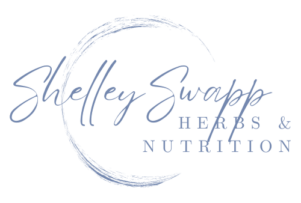Keeping you & your athletes healthy!
Is it spring sports season at your house?
It is at ours – spring season is crazy 🤪 intense for many athletes ⚽️🥍⛹🏽♀️🏊🏼♂️🤽🏼♂️
A few of our boys love ❤️ water polo 🤽🏼♂️ and in our neck of the woods, its high school water polo season 🏊🏼♂️

Last weekend was a crazy 24 hour tournament (think Ragnar for water polo) and one of our sons teams played games at 6pm, 11pm, 3am, 7am & 1pm – that’s 5 games in 20 hours!!
These kids played HARD even in the wee hours of the morning and their hard work payed off big time with an undefeated win 🙌🏼.
And as you can imagine, they came home and crashed the rest of the weekend- but many of them also ended up getting sick. 🤒And they have another big tournament this weekend, next weekend and the week after!
Unfortunately, upper respiratory tract infections 😷 and exercise induced vomiting 🤢are common among endurance athletes engaged in intense competition.
Luckily, there is some great research surrounding this phenomenon and if you or someone you love could use some help in this department here are some great places to start:
Vitamin C

Perhaps you’ve heard me sing its praises before? vitamin C is one powerful player!
When it comes to athletes – meaning those striving to stay in top shape and are generally healthy, a cochran database review found that healthy individuals who engagned in physically stressful activities such as marathons, skiers, soldiers on subarctic exercises, etc AND took vitamin C supplements showed a 50% decrease in the risk of developing a cold.
Other studies saw reduction in symptoms and overall duration of sickness when vitamin C supplementation is included.
some researchers suggest doses as high as 10 grams (that’s a ton!), but most recommend starting at 500-1000mg at a time, a few times a day unless you experience gas, bloating or loose stools. (that’s called reaching bowel tolerance.).
At our house, we prefer liquid Vitamin c – and this is the one I’ve had the best luck with. Nothing fancy, but I’ve had too many other brands go bad (or arrive spoiled), so I end up going back to this one, 1 tablespoon does the trick, it tastes good enough to take straight and it mixes well with other things (like elderberry which we take throughout the flu season)
And don’t forget about all the awesome foods sources of vitamin c.
Vitamin D
Ok, so I may have mentioned this one a few times before –
But it’s worth remembering – the sunshine vitamin is essential to our immune regulation and low levels have been shown to increase the risk and the severity of upper respiratory infections.
2000 IU/day to 5000 IU/Day – the higher dose during the winter and for individuals who aren’t getting much sunshine.
this is a good level to get checked the next time you get into see your Dr as its such a common deficiency and and can be remedied by consistent supplementation and access to the sun.
Grass fed milk products, fatty fish and eggs from pasture raised chickens are all good sources of this important vitamin.
Probiotics

In italy, researchers evaluated adults over 3 winter seasons who were taking specific probiotics vs those who were taking a placebo – the severity of infections and incidence of infection significantly decreased among those taking the probiotic.
Ashwagandha

known as the King of herbs in the Ayurvedic herbal medicine practices of india – this herb is so beneficial.
While you don’t need to be an athlete to see benefits, research (and traditional use) has shown this is a wonderful herb for athletes. regularly taking ashwaganda has shown to greatly improve cardiovascular endurance and decrease recovery time. (which also translates into less likely to get sick!)
Ashwagandha also helps you to sleep more deeply and manage stress more effectively. (who doesn’t need that?)
dosing is anywhere from 600mg/day to 1200 mg/day and is generally well tolerated. You’ll find more information on this king of herbs here.
Tips to prevent dehydration

(and to help treat it if it happens to you or your athlete)
Elderflower infusion – adding this delicate little flower can help cool an overheating body down and help absorb fluids quickly.

Hibiscus flower – another bright and cheery flower that does the job of cooling and restoring fluids to the body quickly and efficiently. It’s bright tart taste is generally a welcome flavor and blends well with other herbs mentioned here.

And don’t forget sweet Chamomile – especially for nausea from over exertion and dehydration. This little lady is full of nutrients that help calm and settle the nervous system, calm inflammation as well as improve sleep and settle nausea. More info on this favorite herb here.

Hopefully you feel like you’ve got a bunch of tools to keep you and your athlete healthy and in the game!
If you’re in need of more personalized help I’d love to be your gal! Schedule a complimentary meeting here.

